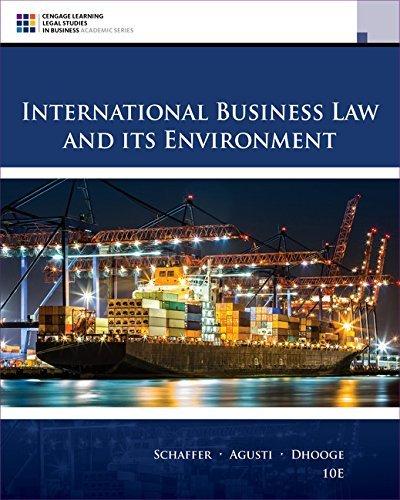In the early 1950s, the United States was at war in Korea as part of a United
Question:
1. On what grounds did Justice Black reject President Truman's seizure order?
2. Explain Justice Jackson's tripartite classification of presidential power. When is the president's authority considered to be at its "lowest ebb"? How did he classify President Truman's action in seizing the steel mills, and why?
Fantastic news! We've Found the answer you've been seeking!
Step by Step Answer:
Related Book For 

International Business Law And Its Environment
ISBN: 9781305972599
10th Edition
Authors: Richard Schaffer, Filiberto Agusti, Lucien J. Dhooge
Question Posted:





